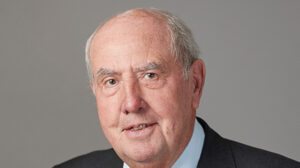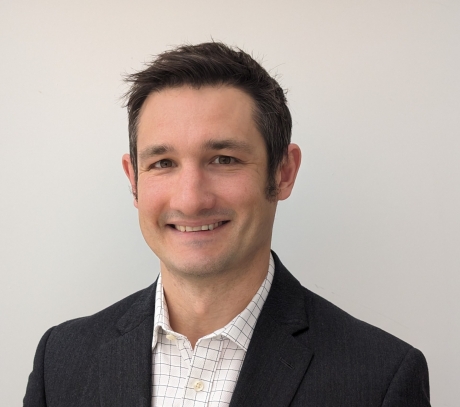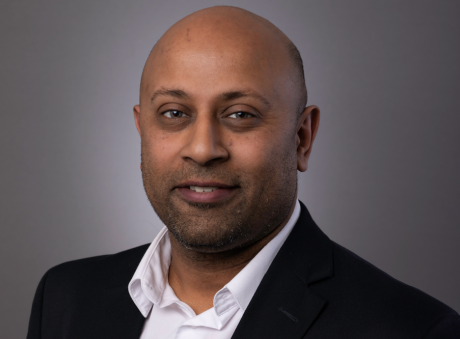
Tony Davison, chairman of HPD LendScape, has steered the business through dramatic market changes over the past four decades and he predicts there is further disruption ahead as it begins its next stage of global growth.
Like all the best stories of successful entrepreneurs, the seeds of success were sown by chance for Tony Davison, chairman of global specialist software company HPD LendScape.
“I stumbled into the industry by accident,” he said. “When I left university, a friend had a job at IBM and suggested that I go there.”
His choice, made in 1966, would eventually secure Davison a place at the heart of a decades-long IT revolution that has reshaped global business and has yet to show any signs of slowing its disruptive influence.
Within five years, he was part of his own business, Hill Price Davison, providing general IT services, and over more than four decades he has guided it through a constantly changing business environment that has been transformed, at first by computing, then by mobile technologies, the internet and most recently by artificial intelligence.
Davison (pictured) said: “I was originally an IT person and have become more of a businessperson over time. It has been quite a journey.”
Growth of a specialist business
After initially focusing on sales ledger systems, the business switched to the specialist world of asset-based lending when it secured a contract to produce a factoring system for Bank of Boston in 1983.
This inspired the development of iFactor, its first packaged solution for the receivables finance market, which was launched in 1985 and rapidly became an international success, with clients including Bank of Ireland and Royal Bank of Scotland.
The success of the multi-lingual system led to HPD LendScape winning a Queen’s Award for Enterprise in 1999 for its success in international trade (it went on to win the award again in 2018).
Davison added: “Our niche is narrow, but it’s global, so it is a substantial market. It is also extremely complex and the vital importance of having a real commitment to attention to detail makes it hard for new entrants to compete.”
Developing partnerships
HPD LendScape has nurtured long-term partnerships with its global clients and included them in important business development decisions, such as when it changed its core software platform from COBOL in favour of a more modular system that reshaped the business for the future.
“We got banks involved to help specify what our system should look like and with their help we developed Project Aquarius, which was the foundation of the LendScape platform launched last year,” Davison added.
LendScape is the company’s integrated platform for the global asset based lending sector, offering modular software solutions that support multiple product, country, language, currency and time zone operations. At the heart of the LendScape platform, is the receivables and asset management module, which supports multiple financing and service delivery products for global business finance.
Clients continue to play a major part in shaping future innovations.
“The R&D budget today is higher than our turnover was in the early days,” Davison said.
Today, banks and finance providers in more than 50 countries use HPD LendScape’s invoice finance and data gathering solutions to manage more than 80,000 clients.
The pivot to the Cloud
Yet, despite decades of change, the biggest shift in its services may be yet to come.
Davison said: “We are innovating all the time and we have to keep up with banking innovations. We now have voice integration and support open banking, but one of the biggest changes is the move to a cloud-based offering as consumers move that way.
“Cloud-based services account for half of our recurring revenues, which in turn account for two-thirds of our total revenue and both of these percentages will increase to around 75%.’
The growth of cloud-based services brings new challenges, such as providing data centres that can guarantee speed of access, security and availability in a market that continues to expand rapidly.
Digitalisation is also allowing finance companies to synchronise platforms with the accounting systems of clients, generating detailed financial insights that reduce the waiting time for funding, cut administration and help accelerate business growth.
Lending platforms automate and streamline data capture, offering real-time risk management, and provide insights, analytics and extensive reporting.
“Technology will play a huge part in growth,” Davison added. “The more information we can provide through technology, the more finance companies will be able to lend.”
This year, HPD LendScape opened its first Asian office in Singapore. The Asia-Pacific region accounted for more than 25% of global factoring value in 2018, worth USD$750 billion, with Singapore accounting for nearly 10% of value in the region.
As digitalisation becomes widespread, HPD LendScape analysis indicates that asset-based finance is entering a new era of significant growth and market acceptance.
It has been transformed from a “funding method of last resort” to a standard option in the finance director’s toolkit.
Although the pace of growth varies from continent to continent, with more established geographies such as the US and developed Europe growing more slowly, there is strong demand in emerging economies in Central and Eastern Europe, Africa, and Asia Pacific.
Davison was managing director for HPD from 1972 to 2009, chief executive officer of HPD LendScape until 2017 and has since been chairman, with Kevin Day taking over the CEO’s chair.
“Asset based finance is growing globally and there is increasing recognition of its value in both developing and developed markets,” Davison said.
“It may be minor relative to traditional bank lending, but it is still a multi-trillion-dollar market that is gaining momentum every year. HPD LendScape will continue to support our partners as they meet that growing demand, through our working capital finance solutions anywhere in the world.”






